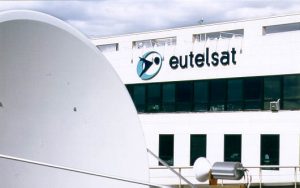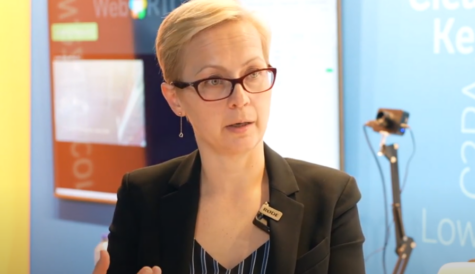
After more than 40 years of operation, DTVE is closing its doors and our website will no longer be updated daily. Thank you for all of your support.
Eutelsat and Nilesat agree partial renewal of 7° West agreement
 Satellite operators Eutelsat and Nilesat have agreed partial renewal terms for Ku capacity at Eutelsat’s 7° West position, part of the 7/8° West video hotspot, for broadcast services across the Middle East.
Satellite operators Eutelsat and Nilesat have agreed partial renewal terms for Ku capacity at Eutelsat’s 7° West position, part of the 7/8° West video hotspot, for broadcast services across the Middle East.
The multi-year, multi-transponder agreement represents the partial renewal of capacity by Egyptian operator Nilesat at what Eutelsat describes as enhanced terms.
Eutelsat and Nilesat’s 7/8° West video hotspot represents a key footprint in the Middle East and North Africa, reaching 90% of TV homes in the region. According to Eutelsat, it is one of the most dynamic neighbourhoods in the global satellite TV market with over 60 million homes and 1,000 channels.
Rodolphe Belmer, Eutelsat’s outgoing CEO said: “We are pleased to renew our collaboration with our long-standing partner, Nilesat, at this key orbital position for the Middle East and North Africa, further cementing our relationship and assuring service continuity to Nilesat’s customers in the region.”
Chairman and CEO of Nilesat, Ahmed Anis said: “We are very happy to pursue our cooperation with Eutelsat, enabling us to continue to optimize resources at the 7° West position for satellite broadcasting and pursue our mission to provide reliable, secure, high quality broadcast services that aim to inform, educate and entertain our valued viewers throughout the Middle East and North Africa.”
Separately, Eutelsat saw its revenues drop in its fiscal first quarter with its traditional video business particularly badly hit.
Total revenues were down 4.4% on a like-for-like basis to €315.4 million. Broadcast revenues were down 6.5% like-for-like to €190.6 million.
Belmer said the revenues were “in line with our expectations” and expressed confidence that current and future year financial objectives would be met.
He said that broadcast revenues reflected last year’s COVID-related slowdown but noted that there were “signs of a return to normal” with “renewed commercial activity in Europe”.


